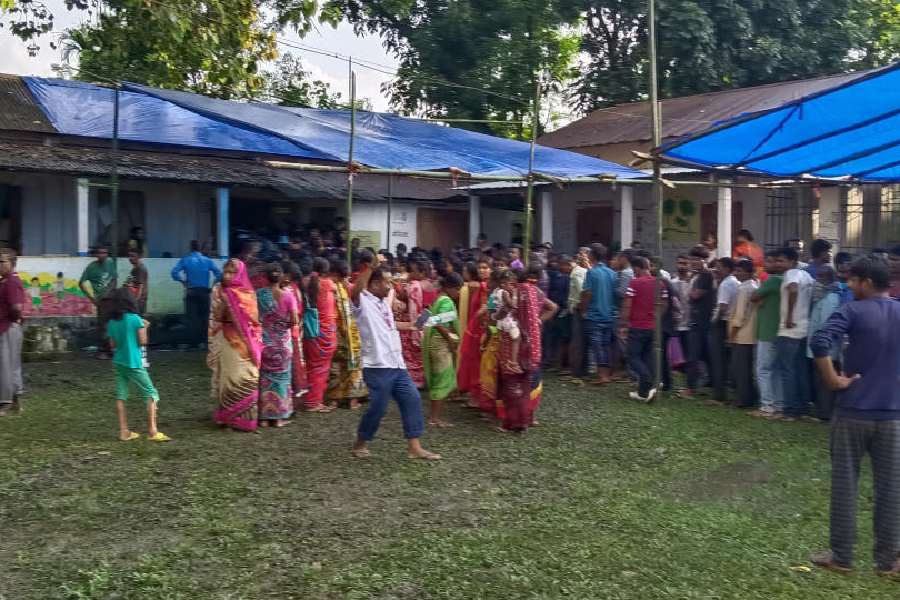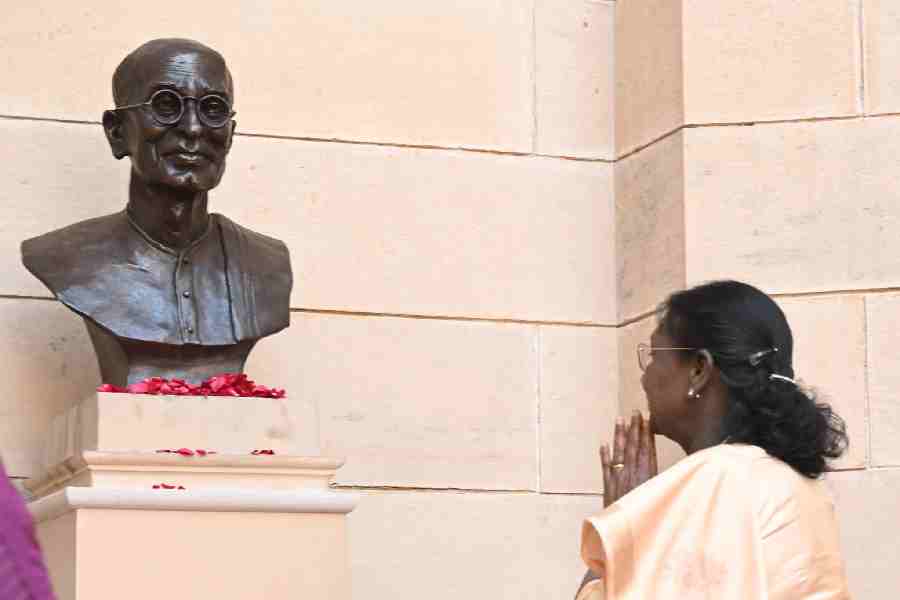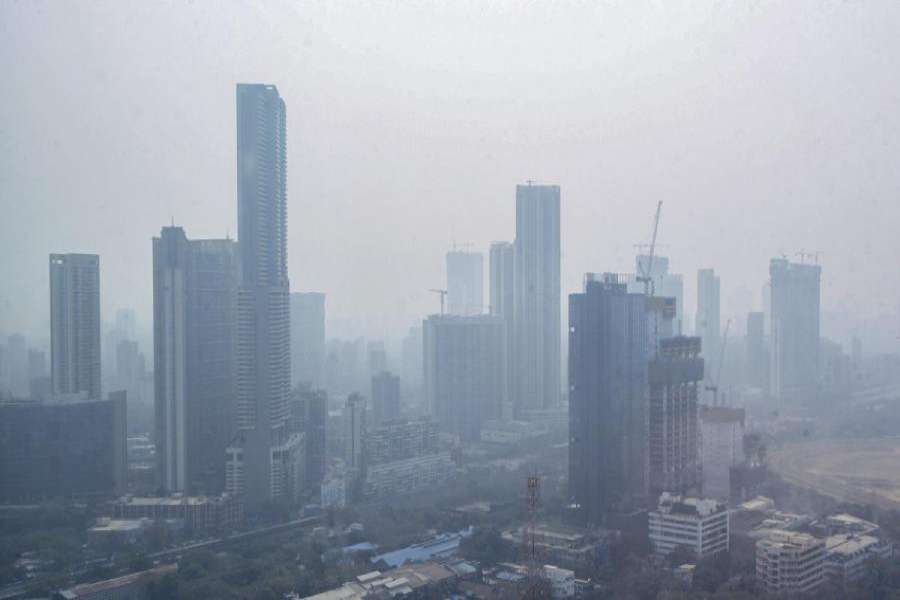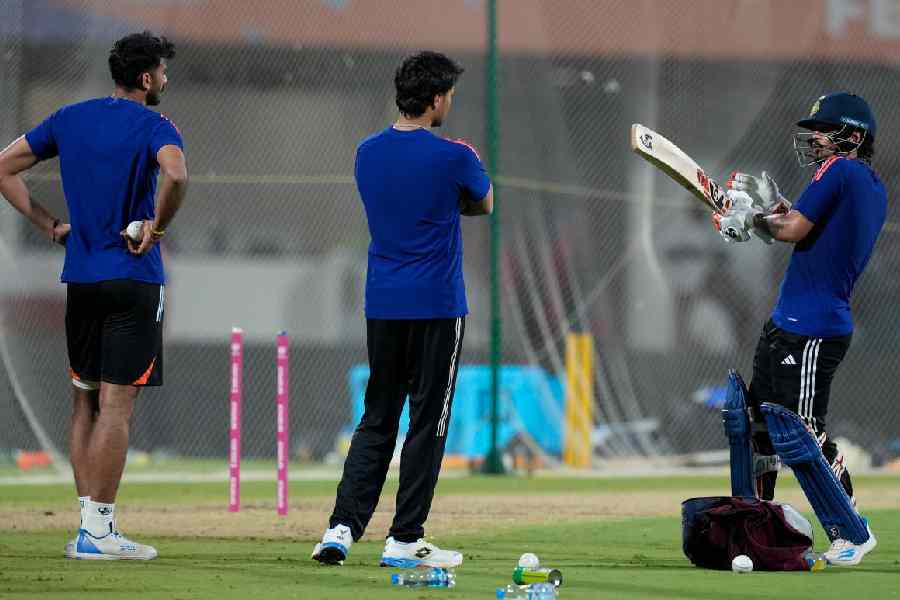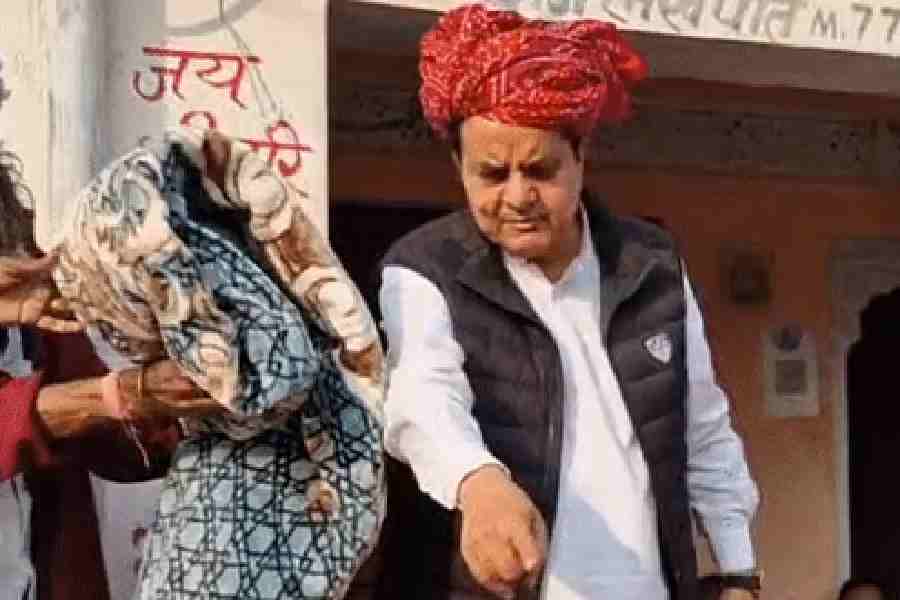The July 8 rural polls witnessed a rise in the number of rejected ballots by four to seven per cent in multiple districts compared to previous elections, said sources, prompting suggestions that the State Election Commission had not carried out awareness programmes among voters properly.
“The usual rate of cancelled or rejected ballots remains around 3-4 per cent in rural polls as many voters stamp the ballots wrongly. This time, the percentage of cancelled votes in gram panchayat was seven to eight per cent in our district,” said an official in Bankura, adding that the rate was over 10 per cent in many seats.
The picture was almost the same in all other districts where 7-10 per cent of the ballots were invalid.
Sources said a large number of ballots were cancelled as electors had used thumb impression, instead of rubber stamp.
The ballots became invalid also because of different reasons, like stamping the seal wrongly on the box dedicated to a candidate, stamping between two boxes dedicated to different candidates or stamping the seal in multiple boxes.
“All these prove that the voters were not made aware of the way to vote by the SEC properly. An awareness programme particularly ahead of the rural polls is a must to ensure that people cast their votes properly. The ECI always conducts an awareness programme for the voters, but the state poll panel never did so,” said an official, explaining that as most of the elections were held on EVMs, people should be trained to cast votes in ballot papers.
A section of the officials said people at many places in the state were casting votes in the rural polls after a gap of 10 years as 34 per cent seats had remained uncontested in 2018.
“In 2018, only three per cent of the ballots were rejected. It is really surprising if 10 per cent of the ballots are invalid. We should remember that EVMs were introduced to avoid such cancelled votes. We think the SEC should think about using EVMs in rural polls,” said Biswanath Chakraborty, a political scientist in Calcutta.
A section of officials also pointed out that a large number of ballots were cancelled because the ballot papers did not bear the signature and the stamp of the presiding officers.
“This hinted that there were some irregularities at polling stations. The allegations levelled by the Opposition parties that goons backed by the ruling party forcefully entered the polling stations and cast votes by pushing the presiding officers outside should be looked into to find out how so many ballots were found without the signature and the stamp of the presiding officers,” said an official.
The cancelled ballots have left an impact on the outcome of the results of the rural polls.
For example, in seat No 5 of Rampurhat 1 panchayat samiti, Trinamul candidate Pampa Mukherjee was defeated by the BJP’s Sudeshna Mukherjee by 36 votes.
But in that seat, 376 out of a total of 5,279 votes were rejected. The cancelled ballots are around 7.1 per cent of the total votes.
Pampa Mukherjee is the wife of a cousin of chief minister Mamata Banerjee.
“We lost hundreds of seats in multiple districts because a huge number of ballots were rejected because of wrong voting. It is unfortunate that SEC failed to make the voters aware of how to exercise their franchise. Valuable votes of thousands of voters were put into the waste bin only because they were not aware of voting on a ballot,” said Jagannath Chattopadhyay, a BJP state general secretary.
Trinamul spokesperson Tanmoy Ghosh said: “There were thousands of voters in this year’s rural polls who cast their votes on ballots for the first time. They had no experience to vote a ballot and the effort of the SEC to teach them on the subject was not enough.”

